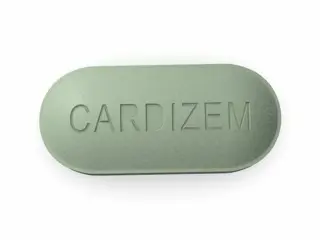| Package | Dosage | Price | Price per Dose | |
|---|---|---|---|---|
| Dosage: 30mg | ||||
| 360 pill | 30mg | £239.06 | £0.66 | |
| 270 pill | 30mg | £188.17 | £0.70 | |
| 180 pill | 30mg | £133.72 | £0.75 | |
| 120 pill | 30mg | £99.40 | £0.83 | |
| 90 pill | 30mg | £80.47 | £0.89 | |
| 60 pill | 30mg | £57.98 | £0.96 | |
| 30 pill | 30mg | £30.76 | £1.03 | |
| Dosage: 60mg | ||||
| 360 pill | 60mg | £327.82 | £0.91 | |
| 270 pill | 60mg | £249.71 | £0.92 | |
| 180 pill | 60mg | £168.05 | £0.93 | |
| 120 pill | 60mg | £114.79 | £0.96 | |
| 90 pill | 60mg | £91.12 | £1.01 | |
| 60 pill | 60mg | £62.71 | £1.05 | |
| 30 pill | 60mg | £34.31 | £1.12 | |
| Dosage: 90mg | ||||
| 360 pill | 90mg | £485.22 | £1.35 | |
| 180 pill | 90mg | £253.26 | £1.41 | |
| 120 pill | 90mg | £171.60 | £1.43 | |
| 90 pill | 90mg | £134.91 | £1.50 | |
| 60 pill | 90mg | £94.67 | £1.57 | |
| 30 pill | 90mg | £50.88 | £1.69 | |
| Dosage: 120mg | ||||
| 360 pill | 120mg | £537.30 | £1.49 | |
| 270 pill | 120mg | £411.85 | £1.53 | |
| 180 pill | 120mg | £281.66 | £1.56 | |
| 120 pill | 120mg | £196.45 | £1.63 | |
| 90 pill | 120mg | £155.03 | £1.72 | |
| 60 pill | 120mg | £110.05 | £1.83 | |
| 30 pill | 120mg | £68.63 | £2.28 | |
| Dosage: 180mg | ||||
| 270 pill | 180mg | £588.19 | £2.18 | |
| 180 pill | 180mg | £402.38 | £2.24 | |
| 120 pill | 180mg | £271.01 | £2.26 | |
| 90 pill | 180mg | £214.20 | £2.38 | |
| 60 pill | 180mg | £151.48 | £2.53 | |
| 30 pill | 180mg | £82.83 | £2.77 | |

Diltiazem Description
Overview of Diltiazem
Diltiazem is a medication widely used to manage various cardiovascular conditions. It belongs to the class of drugs known as calcium channel blockers. This medication works by relaxing the blood vessels, which helps to lower blood pressure and improve blood flow. It is often prescribed for angina, hypertension, and certain types of arrhythmias. The effectiveness of Diltiazem has made it a popular choice among healthcare providers for controlling heart-related issues.
How Diltiazem Works
Diltiazem inhibits the influx of calcium ions into the smooth muscle cells of the heart and blood vessels. By doing so, it causes vasodilation—the widening of blood vessels. This process reduces the workload on the heart and decreases oxygen demand, which helps to alleviate angina symptoms. Additionally, Diltiazem slows down the electrical conduction in the heart, making it useful for treating arrhythmias like atrial fibrillation and flutter. Its dual action on blood vessels and cardiac conduction makes it versatile for various cardiac conditions.
Usage and Dosage
Diltiazem is generally prescribed in oral tablet or capsule form, with dosages tailored to individual patient needs. It is usually taken once or twice daily, with or without food. For managing hypertension, the typical starting dose may be lower, gradually increased as needed. Patients should adhere strictly to their healthcare provider’s instructions. In some cases, extended-release formulations are used for more convenient dosing and consistent blood levels. Regular monitoring of blood pressure and heart rate helps to ensure optimal treatment outcomes.
Advantages of Diltiazem
One of the main benefits of Diltiazem is its dual mechanism of action, providing both vasodilation and heart rate control. This makes it effective not only for lowering blood pressure but also for preventing angina attacks. Its ability to slow down abnormal heart rhythms adds to its versatility. Many patients tolerate Diltiazem well, experiencing significant symptom relief with minimal side effects. Its extended-release formulations also offer ease of use for those requiring ongoing management of their conditions.
Potential Side Effects and Precautions
Like all medications, Diltiazem may cause side effects in some individuals. Common issues include dizziness, headache, flushing, and swelling of the ankles or feet. Some patients might experience gastrointestinal discomfort, such as nausea or upset stomach. Serious but rare side effects include irregular heartbeats or worsening heart failure. It is important for patients with certain health conditions, such as heart failure or liver problems, to consult their healthcare provider before starting Diltiazem. Regular follow-up and monitoring are essential to minimize risks and adjust treatment as necessary.
Drug Interactions and Safety
Diltiazem can interact with other medications, especially other blood pressure drugs, certain antibiotics, or drugs that affect the heart rhythm. Combining Diltiazem with medications like beta-blockers may increase the risk of excessive heart rate slowing or blood pressure drops. Patients should always inform their healthcare provider of all medicines they are taking. It is also contraindicated in some conditions, such as severe hypotension or known allergy to the drug. Proper medical supervision ensures safe use of Diltiazem and optimal therapeutic benefits.
Conclusion
In summary, Diltiazem is an effective calcium channel blocker that helps manage hypertension, angina, and cardiac arrhythmias. Its ability to relax blood vessels and control heart rhythm makes it a valuable medication in cardiovascular therapy. While generally well-tolerated, awareness of potential side effects and interactions is vital. With appropriate medical guidance, Diltiazem can significantly improve quality of life for patients with heart-related conditions.
